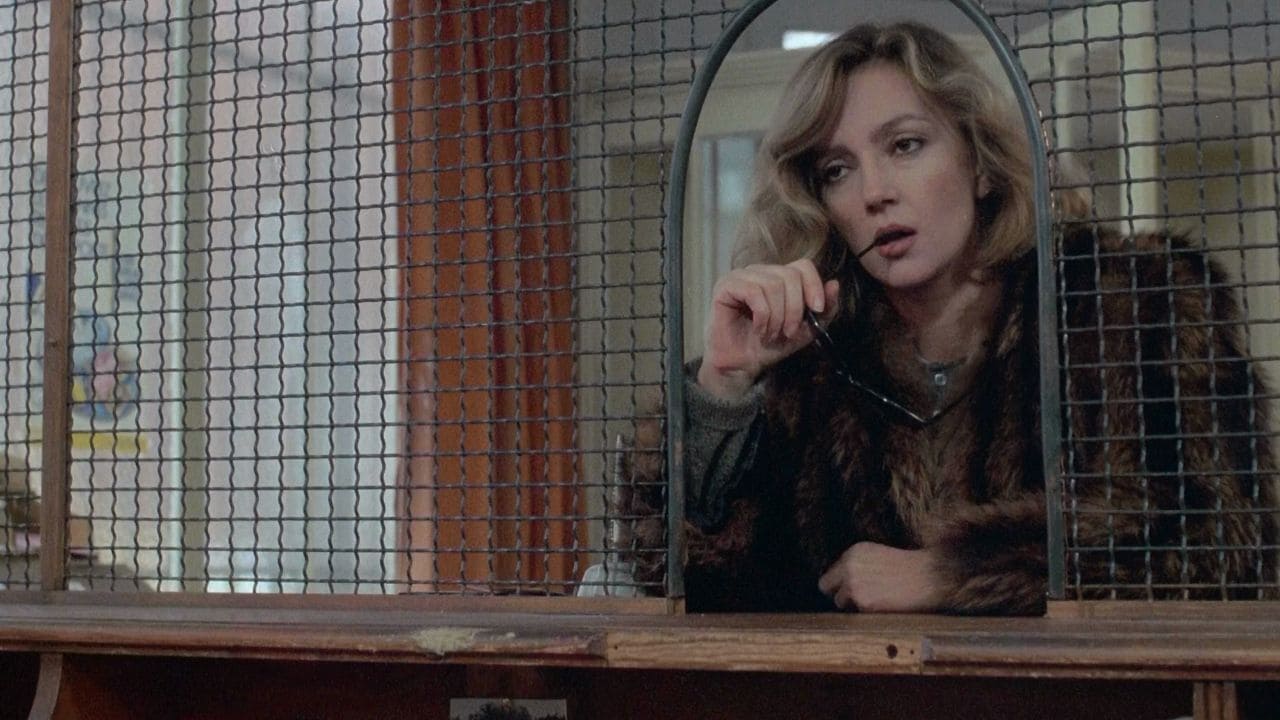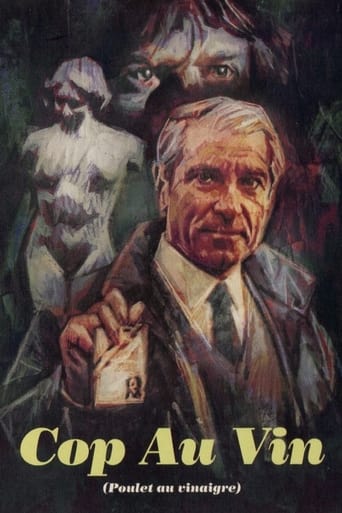ScoobyWell
Great visuals, story delivers no surprises
Phonearl
Good start, but then it gets ruined
TrueHello
Fun premise, good actors, bad writing. This film seemed to have potential at the beginning but it quickly devolves into a trite action film. Ultimately it's very boring.
FirstWitch
A movie that not only functions as a solid scarefest but a razor-sharp satire.
writers_reign
Let's be honest I have enjoyed a couple of Chabrol films over the years though I would never accuse him of being in the same league as the really GREAT French film makers, the Carnes, Duviviers, Feyders, and even the second eleven like Albert Valentin, Pierre Chenal and the like could eclipse him on their day and for me, I'm afraid, this is definitely minor league. I am, of course, quite happy as an Englishman, to concede that it's more than possible that some of the fun Chabrol delights in poking at French bourgeoisie eludes me but he has a nice line in muted, pastel camera-work and more often than not he employs actors who can hit their marks and chew gum at the same time so that once in about half a dozen films the Law of Averages kicks in and he comes up with a half decent movie. This one has the feel it was about number three or four after the last decent entry but to be fair he was lumbered - or maybe saddled himself - with Lucas Belvaux in a prominent role and after watching the inept Belvaux stumbling and fumbling his way through the film like a blind man attempting to ascend a spiral staircase after downing a fifth of White Lightnin' it's easy to see why he turned to directing. See it by all means if you're a Chabrol completist but don't say I didn't warn you.
gridoon2018
The first half of "Cop Au Vin" is kind of muddled, and even borderline dull at times: lots of characters and backstories are thrown at you as if you're supposed to know them already (you may need a second viewing to take it all in). Things start to get more interesting when a vengeful prank misfires into something much worse, and then get even more interesting when Inspector Lavardin arrives on the scene. Lavardin is like a strange cross between Hercule Poirot (in his eccentricity and intuition), and Dirty Harry (in his unorthodox and occasionally even violent methods of investigation and interrogation). Another character I really liked was the hero's girlfriend (played by Pauline Lafont, who tragically died in an accident only three years later): every boy should be so lucky to get his emotional / sexual maturing via such a beautiful, affectionate and playful girl. The (good-looking and well-acted) movie ends with a couple of Agatha Christie-type twists: two of them blindsided me, but the one about the mother (Stephane Audran), for some reason I suspected it from the beginning. Leonard Maltin gives this ***1/2 out of 4 stars, but IMO he's overrating it; I'll give it **1/2.
The_Void
I've seen a handful of Chabrol films and have so far been impressed with all of them. This film is my first experience of Chabrol's work in the eighties and while I'm not surprised at the fact that it gets lambasted by some; and it's not quite up to the great French director's previous high standards, personally I found this to be yet another great example of Chabrol's moody and brooding direction coupled with an interesting plot line and some good performances. The plot is not quite as deep as the ones seen in previous Chabrol films, but there's still plenty to chew on. The base of the story is Madame Curo and her son Louis. They live in a house that is wanted by two unscrupulous people in the village, but what they don't realise is that the son can read their mail, owing to the fact that he works at the post office - which gives them an advantage. The plot kicks off properly when Louis puts sugar into the tank of one of the men's cars, which soon results in a fatal car accident. After the disappearance of the other man's wife, a hard nosed police officer is brought in to investigate.This film has one of the strangest titles I've ever heard of - 'Poulet au vinaigre', translating literally as "Chicken with the Vinegar". Quite what that means, I have no idea. The film has a fair few different plots going on, but the one that Chabrol seems most interested in is the one surrounding Louis, who finds himself in the middle of a "war" that is a bit too big for him and has to deal with his needy, sick mother at the same time. The murder investigation does provide the film with one of its main narratives; but since it doesn't kick off until we're halfway through, it's clear that it wasn't Chabrol's main concern. The acting is very good all round, with Lucas Belvaux making a convincing lead and getting good support from Chabrol's ex-wife and regular muse Stéphane Audran, Jean Poiret; who is excellent as the formidable police officer and my personal favourite, the exquisite Pauline Lafont as the love interest. Chabrol seems to have a thing for ending his films abruptly, and that is the case here as while everything is wrapped up by the end, it is done in a matter of about five minutes. Overall, it's not hard to imagine why this film isn't as well liked as some of Chabrol's other work - but for my money it's still a more than worthwhile thriller and comes recommended.
jotix100
There is a conspiracy in the small Normandie town where a group of upright citizens want to get their hands in the Cuno's property. The Cunos, are by no means innocent themselves, they know a lot of the movements their enemies are trying to do because Louis Cuno has access to a secret weapon: their mail. Louis, who works in the local post office, has a way to read the letters with his mother before they are delivered.Because of the accidental death of Filiol, caused in part by Louis Cuno, propels inspector Lavardin to investigate. This detective has a personal way of investigating what appears to be foul play; his methods are unorthodox. at best. He deals with Lavoisier, one of the men in the conspiracy, with an iron hand, as he discovers that Anna, his mistress, has disappeared without trace.Louis is hounded by the detective, even though he has nothing to do with all that is going on around him. By arising suspicions in the inspector's mind and by being careless when he attracts undue attention by going out with Henriette, his postal co-worker, he feels the heat. Fortunately, Lavardin solves the mystery that clears the young man and his mother, who almost dies when she tries to set the house on fire.A minor Chabrol, like the case of this film, is still interesting to watch. The film is based on a novel by Dominique Roulet, who also adapted it. Claude Chabrol works with great economy in the way he sets his film in the small Normandy town and uses it to great advantage.The performances are not up to some of the best efforts by the director. Jean Poiret's Lavardin presents a man who could be accused of police brutality in the way he deals with the people under suspicion. Michel Bouquet has some good moments as Hubert Lavoisier, an ambitious man who wants to get the Cuno property for himself. Stephane Audran, a frequent Chabrol collaborator, doesn't have much to do as the invalid Mme. Cuno. Lucas Belvaux, who has the best part in the story, gives an uneven performance. Pauline Lafont and Caroline Cellier are also seen in small roles.See the film as a curiosity from Claude Chabrol.

